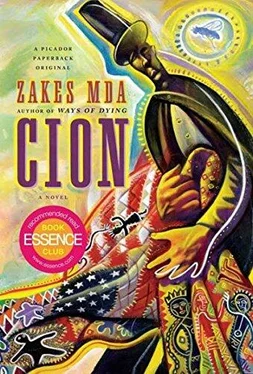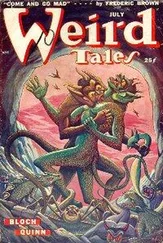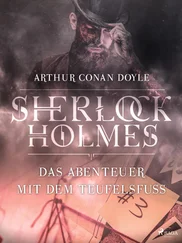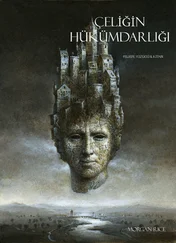I envisioned all sorts of dramatic deaths: a woman strangling herself to death after being overwhelmed by hot flashes in one of the kerosene lamp — lit tunnels of the asylum; another one drowning in her night sweat; a man standing for hours on end against the wall in another tunnel masturbating himself to death; men and women writhing on the sprawling lawns dying from melancholia; an Ohio University student who had previously been admitted for “excessive study” committing suicide by chewing all his books and swallowing them. The richness of re-creating deaths lies in the fact that you first have to re-create the lives of the deceased before they died. I looked forward to the joys of examining those events in their lives that led to these wretched souls’ perceived madness. What troubled these poor men and women, to the extent that they were forced to spend their days in this asylum? How different was their madness from the madness that possessed the sciolist? And why was the sciolist not confined to a mental facility where he deserved to be?
After admiring the gravestones that stood in rows as if they had grown from the ground I picked a prime one. Only then did I realize that they did not have names. Only faint numbers eroding in the sandstone. I could not create the deaths of nameless people. I could not mourn in a cemetery of numbers. Yes, there were about four or five bigger tombstones hewn of more expensive rock — perhaps limestone or granite — with names and dates on them. These stood out incongruously among the hundreds of small flat stones in rows, some almost buried by the lawn. The tombstones were placed by descendants in loving memory of, say, a great-great-grandmother who died a hundred years ago. Then of course there would be the name of the deceased, the dates of birth and death and the date of the dedication of the stone on the hundredth anniversary. But these did not inspire any mourning on my part for they were not the original headstones.
Darkness had fallen.
Crowds began to invade the cemetery, perhaps votaries of some necromantic order. I was caught in a frenzy of flashlights from different directions. The light bounced against the headstones and flashed across the branches of the trees that encompassed the cemetery in a half-circle. I would have thought they were ghosts if I believed in ghosts. I don’t. I have mourned in cemeteries for a decade at all hours of the day and night and I have yet to see a ghost. I could make out the silhouettes of the creatures against the light of the full moon, gamboling among the trees and making shrieking noises and then laughing at the horror movie they were creating for themselves in which they were the actors.
When they got tired of prancing around, hiding behind the trees and booing each other, they left the cemetery in a procession. I decided to follow. We walked down the road cobbled with red bricks, passed two blocks of townhouses (formerly the asylum doctors’ residences), one of which was the sciolist’s home when he first came here, into Richland Avenue. The creatures did not seem to mind my following them. They continued with their boisterous prancing. When we crossed the Hocking River on Richland Avenue Bridge we joined a throng of other creatures, all going in the same direction. Among them were Roman sentries and their ladies in white and gold togas. They walked silently, some pairs holding hands. They did not seem to mind a bloody gang of Visigoths, Vikings and Vandals in horned helmets led by Hagar the Horrible, which was bent on confounding and conflating history, and on disturbing the peace for everyone. Some of these savages were as young as six, while Hagar himself was a doddering old man. Possibly a retired professor with too much time on his hands. I kept my distance. Just in front of me was a very cute Little Red Riding Hood walking hand in hand with a big shaggy wolf.
I followed the crowds until we got to brown brick — paved Court Street.

No one pays any particular attention to me here. My stocky figure, broad face and thick eyebrows are less foreboding than the ghoulish faces of some of these creatures. My small eyes that have always been praised for having a permanently sorrowful look, my yellowish complexion and my small oval mouth do not invite stares as they have always done elsewhere, even in my own country. My funereal costume of tall shiny black top hat, tight-fitting black pants, sharp pointed black shoes and a velvety black cape buckled with a big gold-colored brooch with tassels of red, yellow and green, is not out of place here. A small suitcase of my worldly possessions, including clean underwear, is obviously looked upon by the rest of the celebrants as an accessory to the outfit.
The mention of fresh underwear may alert you to the fact that many things have changed in my life since we last met. For instance, I used to stink like death. It was a sign of respect for the dead. Or you may say it was a badge of honor — my trademark, so to speak — as a professional mourner. Noria changed all that. She taught me that there were other ways of honoring the dead without necessarily smelling like the corpse of a dog left to rot by the roadside. She brought cleanliness into my life. One will do anything for the woman one loves, even take a regular bath.
People stop and look and smile and move on. Friendly smiles, not the derision that I had become used to back home. They are a jolly lot, these creatures, and don’t hesitate to admire one another. They admire me because they think I am one of them. But fortunately they do not crowd around me as they do to those they deem more interesting…those who are not only parading but are also performing. Not far from where I am standing under a lamp post a group of them are applauding a creature with the face of a mandrill and the body of a well-shaped woman in a pink tutu. It is prancing about and preening itself with the aid of a mirror that hangs on Vice-President Dick Cheney’s chest. At the same time the creature is clearing the path for him. He sports a stupid grin that stays on his face without changing. He does not even blink despite the flurry of activity around him.
“Ladies and gentlemen,” the mandrill-girl announces, “Mr. Dick Cheney and the Halliburtons!”
The crowd cheers and applauds as he takes three bows; each time the mirror swings and hits his knees. His white suit is rather tight for his bulk.
The Halliburtons are three little people in green suits and white fedoras. Glowing smokeless cigars hang carelessly on their lips. They carry violin cases like old-style movie gangsters. They follow Mr. Cheney closely and will not let anybody touch him. My eyes follow this gang until it disappears in the crowd.
You don’t stand still in the parade of creatures. You walk from one end of the street to the other, sometimes elbowing your way through yet thicker crowds. Where Court Street crosses West Union a band is playing on a makeshift stage. But the creatures don’t dance. They just stand in front of the stage, eyes agog. Others soon get bored and start drifting to the concession stands on West Union. The pagans must be fed: they purchase gyros and French fries from food vendors whose vehicles are lining the street. A patriotic entrepreneur has crossed out the word French on the French fries sign and has replaced it with Liberty . A demonstrator stands across from the patriot’s trailer with a sign that reads: We need an enemy. Even if it’s the French. We won’t survive without an enemy. Otherwise we’ll start eating each other.
Another enterprising creature is selling kisses instead of food. He walks inside his mobile kissing booth inviting female prospective customers to swing by and sample his wares. There are no takers even though his price has gone down tremendously: the sign above his booth shows that he started at ten dollars, then crossed it out and went down to five, then to two, and now the kisses are free. Only queer creatures in drag are prepared to take the offer, but he tries to ward them off as they attack with pursed lips and purring sounds. They are persistent and he turns his tail and runs for dear life. The queer creatures laugh at him as he disappears in the crowds, and then they go their way.
Читать дальше













